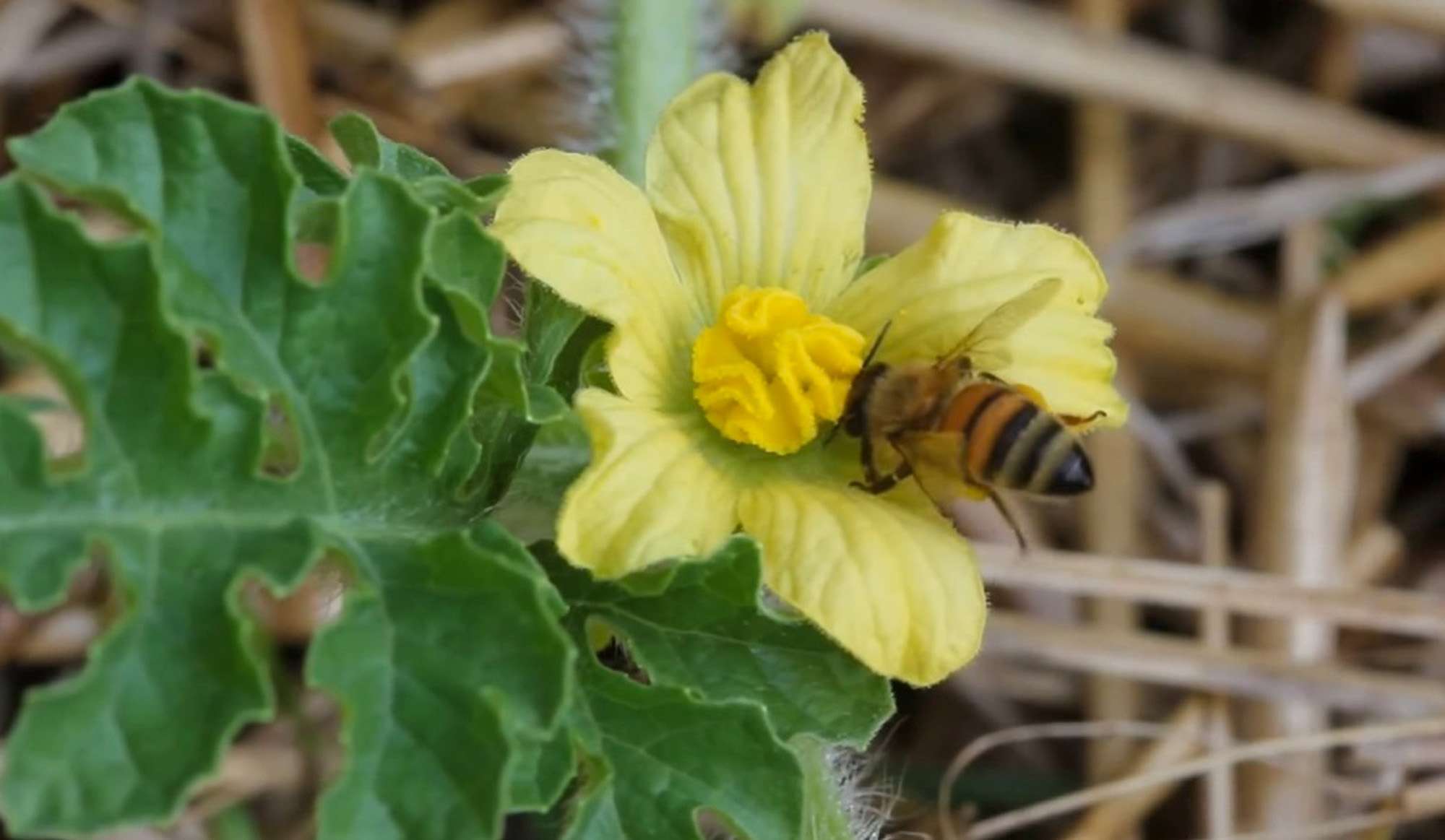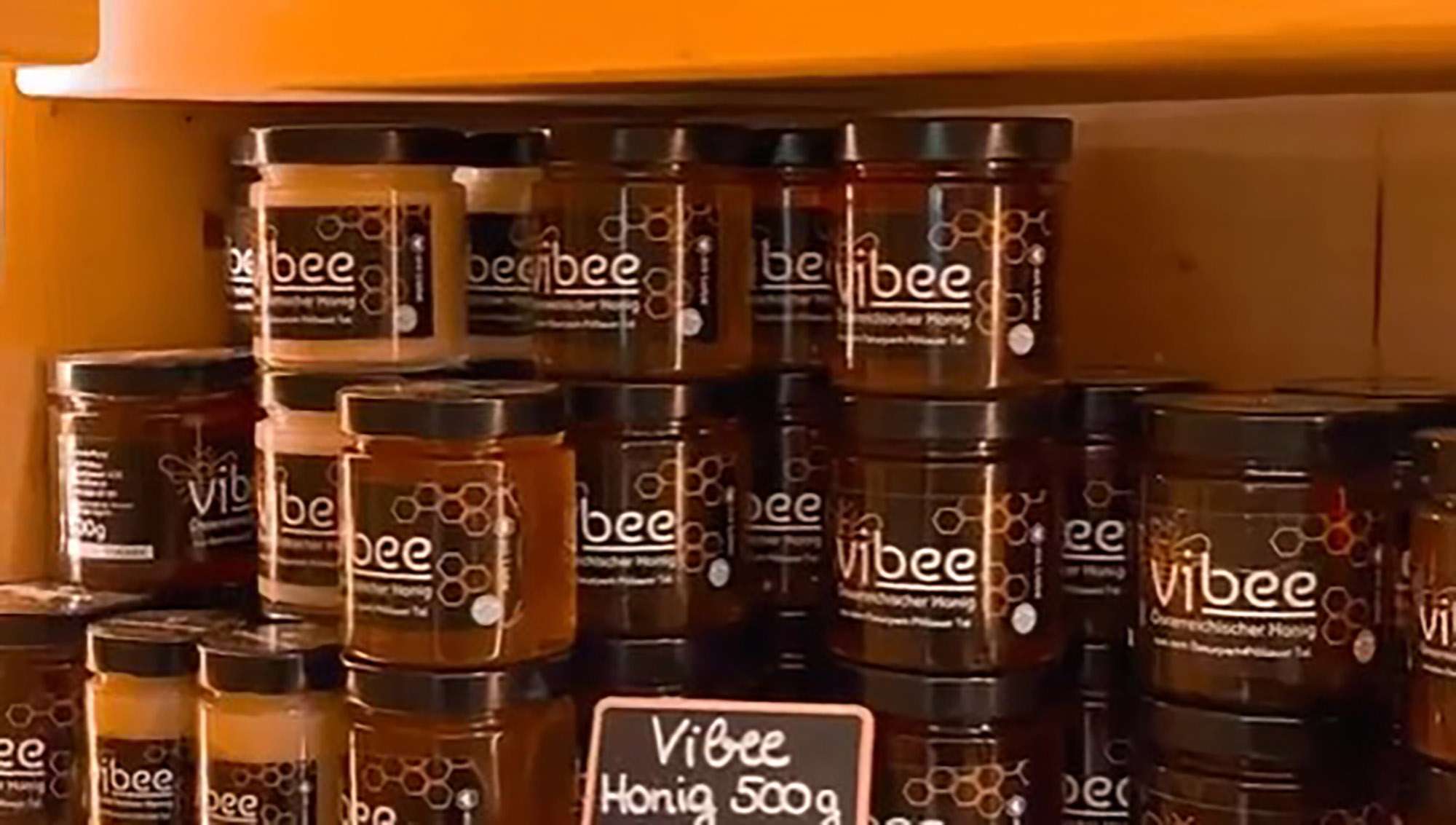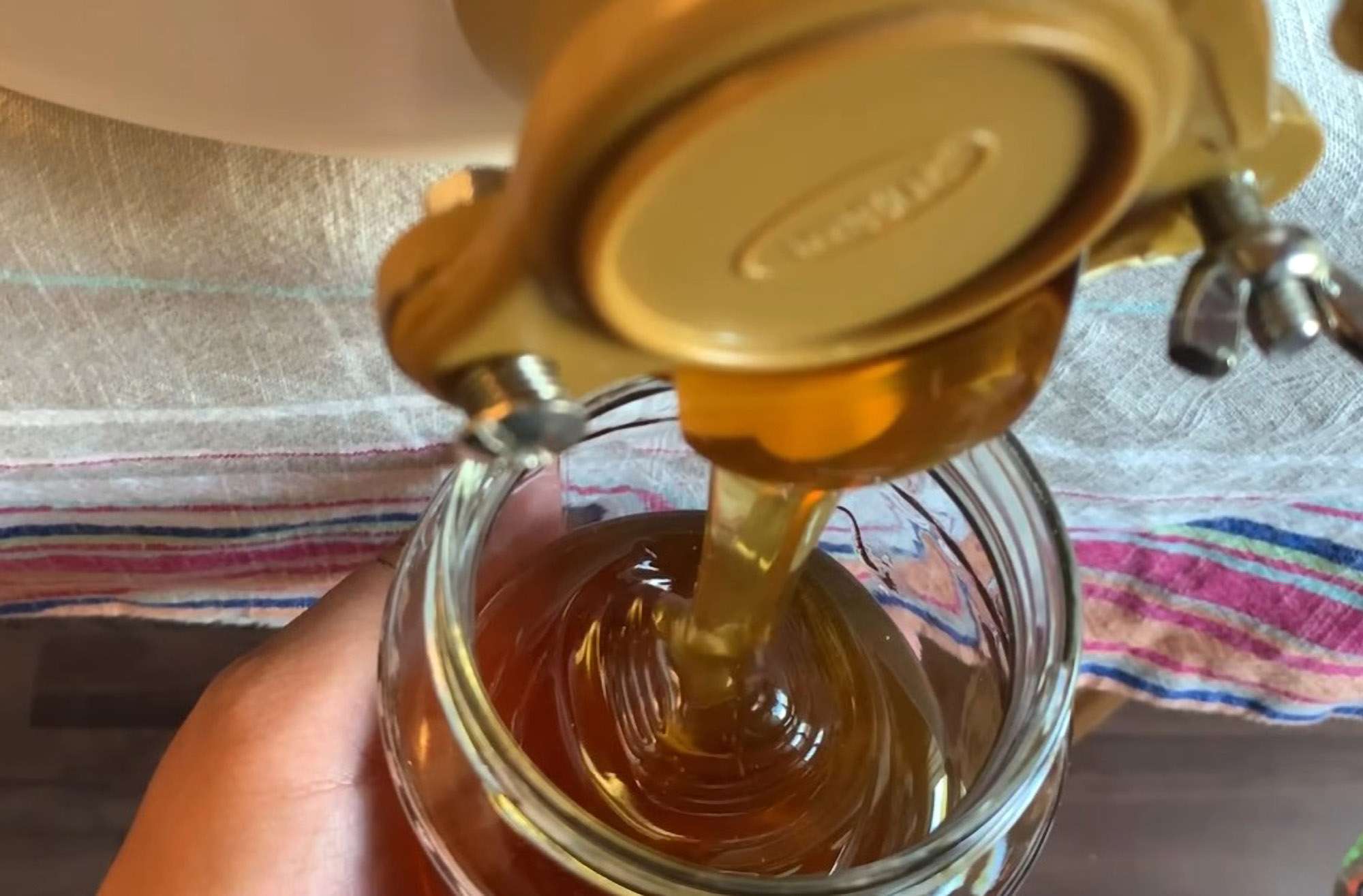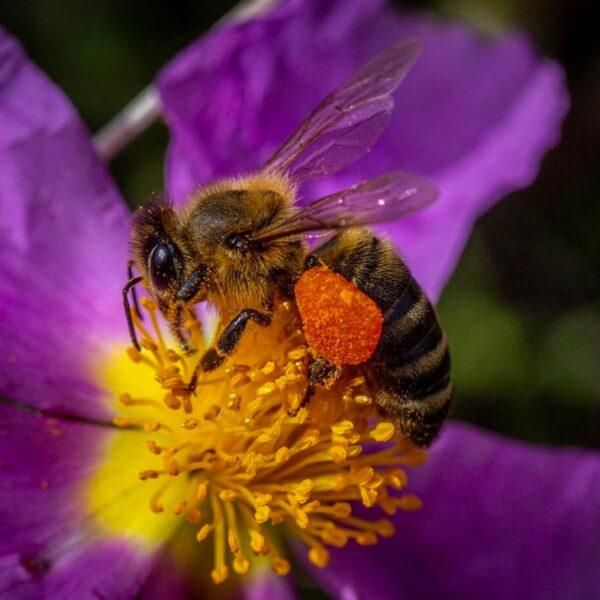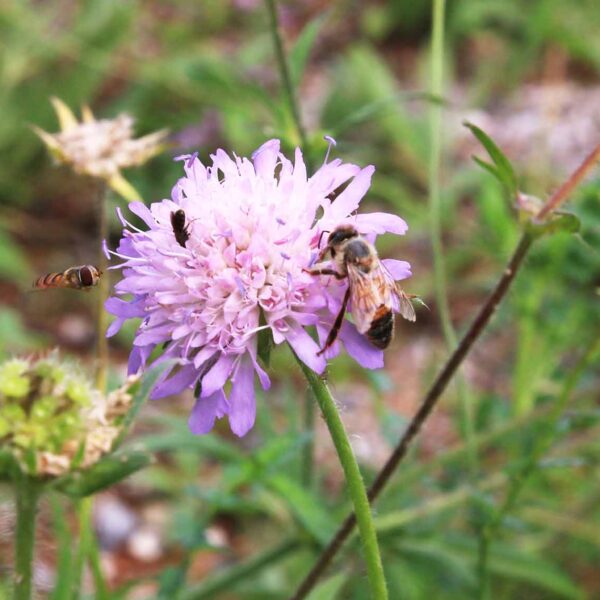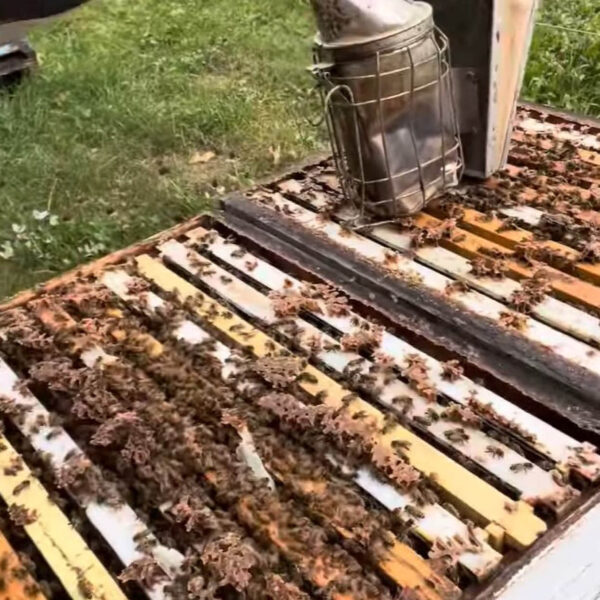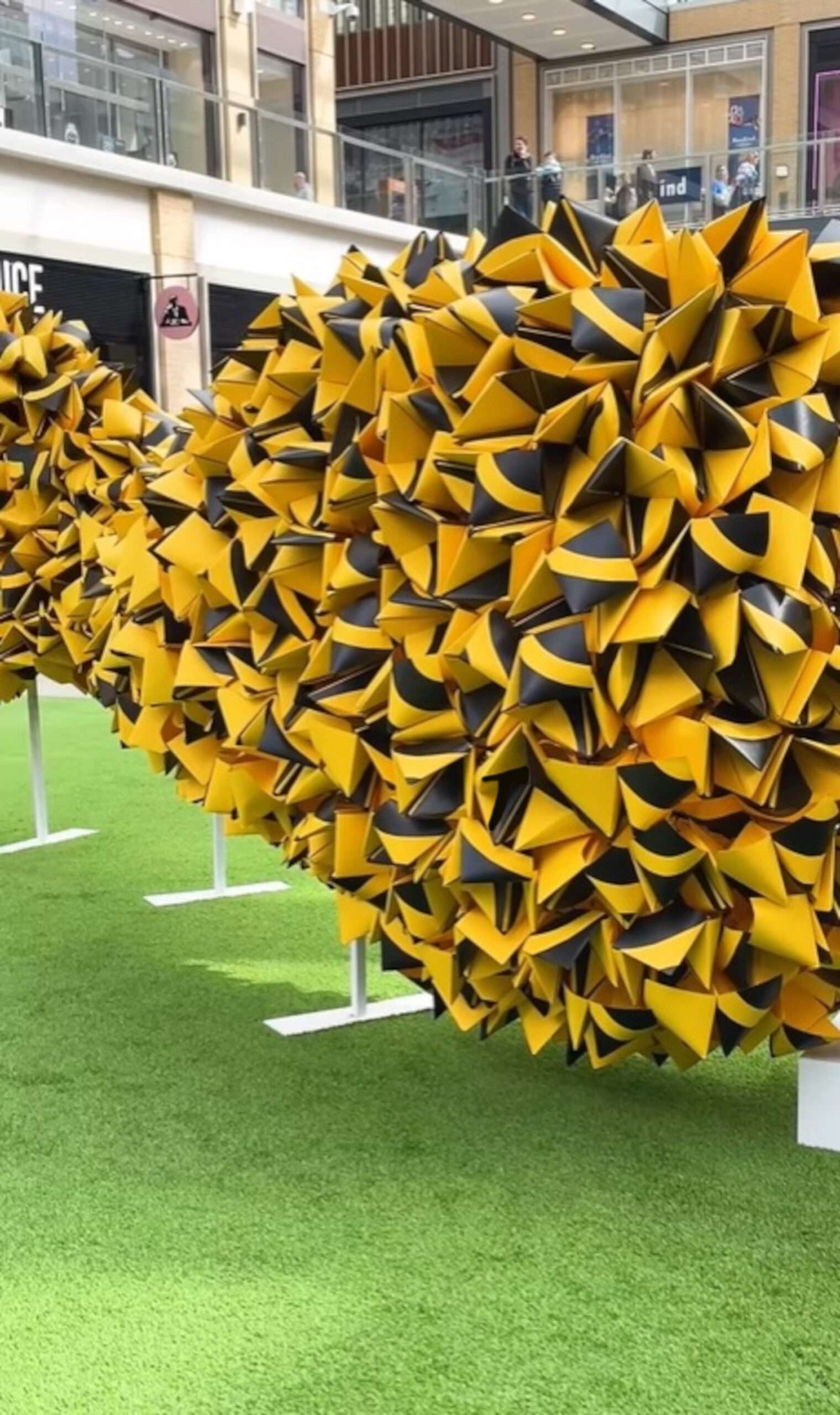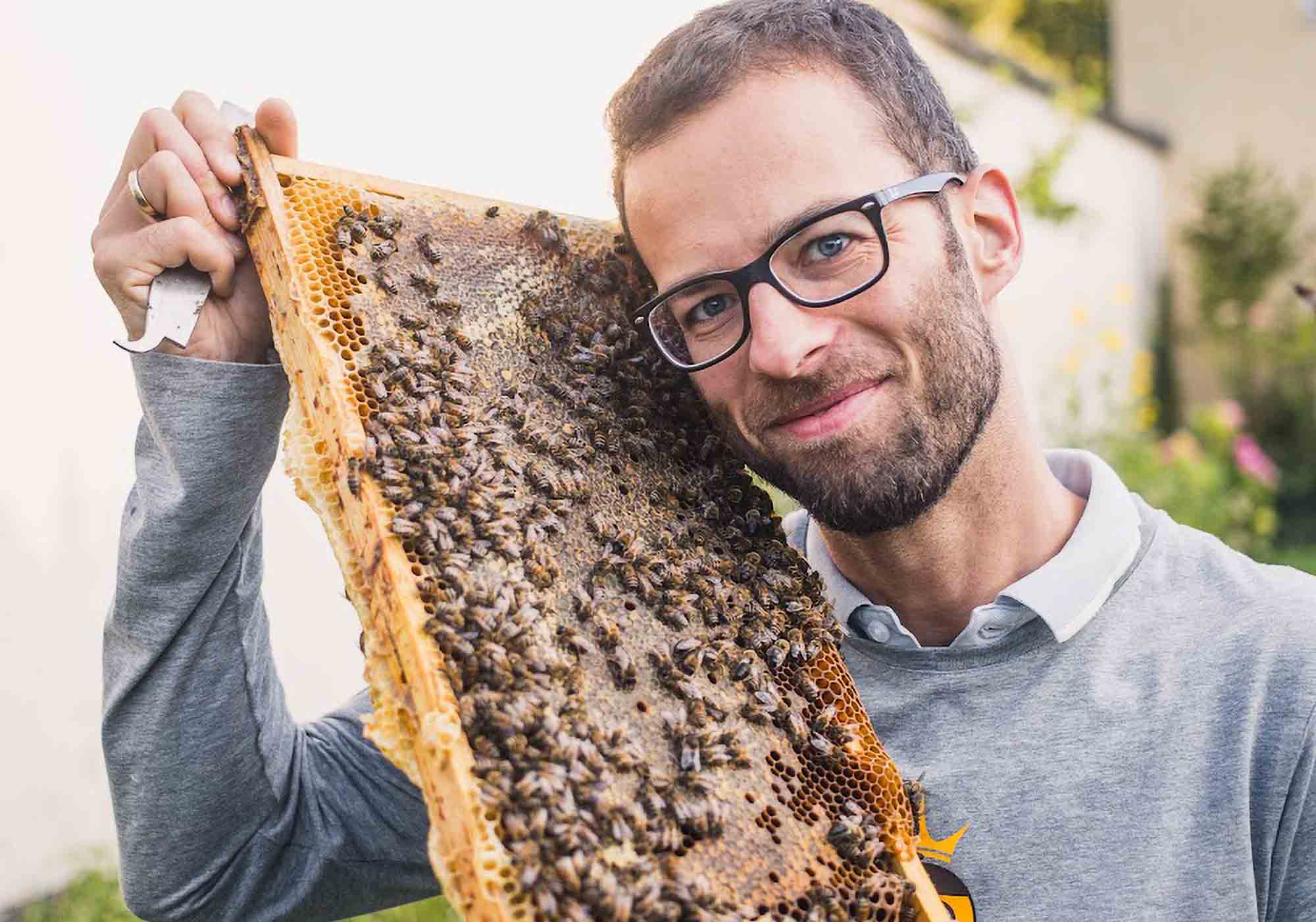Scientists in the United States are worried about a significant decrease in watermelon flower pollination by wild bees.
Rutgers University researchers examined data from eight years regarding bee populations and pollinating activities at 19 commercial fruit farms in central New Jersey and eastern Pennsylvania.
Their research reveals that the pollination of watermelon flowers by wild bees slumped by more than half between 2005 and 2012.
According to the experts on community ecology and landscape ecology, the decline was similar for bumblebees while the population of honeybees – which are not native to the region and are managed in hives – remained stable.
Watermelons depend on bees for pollination because each plant has separate male and female flowers. Female watermelon flowers require thousands of grains of pollen to bear fruit.
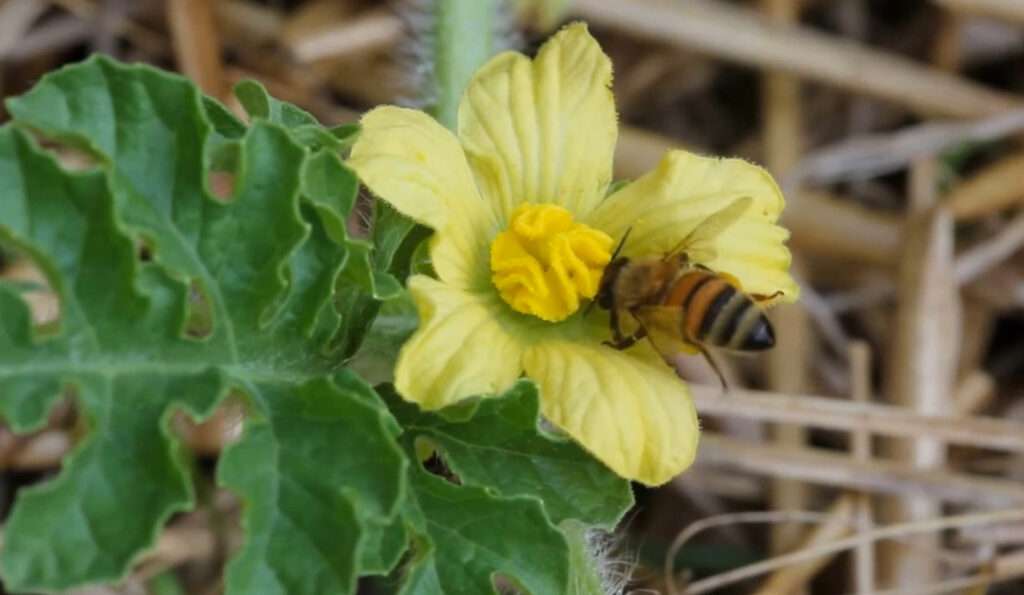
The term wild bee describes all other species of bees apart from the western honeybee such as carpenter bees and mason bees. All of them are pollinators which play an important role in ensuring a stable and healthy environment.
Professor Rachael Winfree, Andrew Aldercotte and Dylan Simpson from the Department of Ecology, Evolution and Natural Resources at Rutgers University, New Jersey, co-authored the study entitled “Crop visitation by wild bees declines over an 8-year time series: A dramatic trend, or just dramatic between-year variation?”
Aldercotte said: “This study is important because it is one of the first to assess trends in wild bee abundance in an agricultural system, where bees are providing an economically important ecosystem service.
“Despite widespread recognition of the need for long-term monitoring of pollinator abundances and pollination service provision, such studies are exceedingly rare.”
Aldercotte underlined that further research was necessary to determine whether their findings indicated a threat to global food production or were just a local phenomenon.

